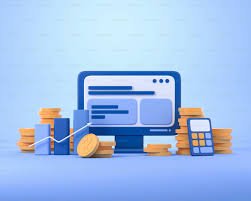In an era where technology evolves at breakneck speed, mobile app development is undergoing a significant transformation. Emerging technologies are reshaping how mobile applications are designed, developed, and experienced. This blog explores the impact of these technologies on mobile app development, highlighting how they influence the industry and how companies can leverage them for competitive advantage.
1. Introduction
Mobile app development has always been driven by technological advancements. From the early days of basic apps to today’s sophisticated, feature-rich applications, each technological leap has significantly influenced the industry. Today, emerging technologies such as artificial intelligence AI machine learning ML, augmented reality AR virtual reality VR, and blockchain are revolutionizing mobile app development company . For businesses, understanding and integrating these technologies can lead to more innovative, efficient, and user-centric applications.
2. Artificial Intelligence and Machine Learning
A. Enhancing User Experience
AI and ML are transforming mobile apps by making them more intuitive and responsive. These technologies enable apps to learn from user behavior and adapt accordingly, providing personalized experiences.
Personalization:
AI algorithms analyze user data to deliver tailored content and recommendations. For instance, streaming services use AI to suggest shows and movies based on viewing history.
Chatbots and Virtual Assistants:
AI-powered chatbots provide instant customer support and assist users with various tasks, enhancing user satisfaction and engagement.
B. Improving App Functionality
AI and ML also enhance app functionality by enabling features such as predictive analytics and automated processes.
Predictive Analytics:
By analyzing historical data, apps can predict future trends and behaviors, helping businesses make data-driven decisions.
Automation:
AI can automate routine tasks, such as data entry or content moderation, increasing efficiency and reducing operational costs.
3. Augmented Reality AR and Virtual Reality VR
A. Immersive Experiences
AR and VR are creating immersive experiences that go beyond traditional app interactions. These technologies are particularly impactful in industries like gaming, retail, and real estate.AR: Augmented reality overlays digital information onto the real world. For example, AR apps can allow users to visualize how furniture would look in their homes before making a purchase. VR Virtual reality immerses users in a fully digital environment. VR apps can provide virtual tours, simulations, and interactive experiences that enhance engagement and provide new opportunities for users.
B. Enhanced User Interaction
Both AR and VR offer novel ways for users to interact with apps, making the experience more engaging and interactive.
AR Filters:
Social media apps use AR filters to enhance photos and videos, creating fun and shareable content.
VR Environments:
In VR, users can explore virtual spaces, interact with 3D objects, and experience simulations that were previously impossible in a mobile environment.
4. Blockchain Technology
A. Enhanced Security
Blockchain technology is revolutionizing the way data is stored and managed in mobile apps. Its decentralized nature provides enhanced security and transparency.
Data Integrity:
Blockchain ensures that data is tamper-proof and transparent, which is crucial for applications dealing with sensitive information, such as financial transactions or personal data.
Smart Contracts:
Smart contracts automate and enforce agreements without intermediaries, reducing fraud and ensuring that contractual terms are met.
B. Improved Trust
By leveraging blockchain, mobile app developers can build trust with users by ensuring data integrity and providing a transparent system for transactions and interactions.
Decentralized Apps DApps:
DApps operate on a blockchain network, offering greater transparency and security compared to traditional applications.
5. Internet of Things oT
A. Seamless Connectivity
The Internet of Things IoT connects physical devices to the internet, enabling seamless data exchange and control. Mobile apps play a crucial role in managing and interacting with IoT devices.
Smart Home Integration:
Mobile apps control smart home devices such as thermostats, lights, and security systems, providing users with convenience and enhanced control over their environment.
Wearable Technology:
Apps for wearable devices, like fitness trackers, collect and analyze health data, offering users insights into their well-being and fitness progress.
B. Real-Time Data and Automation
IoT apps facilitate real-time data monitoring and automation, improving efficiency and user experience.
Real-Time Monitoring:
IoT apps provide real-time updates and alerts, allowing users to monitor and respond to changes in their connected devices.
Automation:
Automated actions based on IoT data can streamline processes and enhance user convenience.
6. 5G Technology
A. Faster Speeds and Reduced Latency
5G technology offers faster data speeds and reduced latency, significantly improving mobile app performance.
Enhanced Performance:
With 5G, apps can load faster, stream high-quality video without buffering, and support more simultaneous connections.
Improved User Experience:
Reduced latency ensures smoother interactions and more responsive applications, enhancing overall user satisfaction.
B. Enabling New Features
5G enables the development of new app features that were previously impractical due to connectivity constraints.
High-Quality Streaming:
5G supports high-definition video streaming and immersive AR/VR experiences without lag or interruptions.
Real-Time Applications:
Applications that require real-time data processing, such as gaming and live event streaming, benefit from 5G’s low latency.
7. Conclusion
Emerging technologies are driving innovation in mobile app development, enabling the creation of more sophisticated, user-friendly, and secure applications. From AI and ML to AR, VR, blockchain, IoT, and 5G, these technologies are reshaping the industry and offering new opportunities for businesses to engage with users and enhance their offerings.
For businesses looking to stay ahead in this rapidly evolving landscape, partnering with a leading mobile app development company and a digital marketing company can provide the expertise and resources needed to leverage these technologies effectively. Embracing these advancements will not only improve app performance and user experience but also position businesses for success in an increasinglt competitive market.






